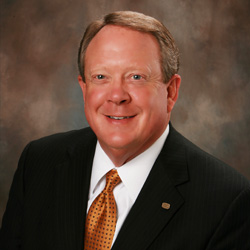IRS Reporting Mandate Grossly Violates Your Privacy
by Max Cook, MBA President and CEO

What can possibly go wrong when you funnel the private data of millions of citizens into the IRS? It’s a terrifying thought, but it’s one we may soon face as U.S. House Democrats intend to include a highly controversial IRS tax reporting provision in their budget reconciliation package.
If you haven’t heard of this provision, it would require banks to report any customer account to the IRS that has annual activity exceeding a certain dollar threshold. For the past few months, the dollar amount has been set at $600. At that level, almost every account at every financial institution in the country would be submitted to the IRS for review as it seeks to catch tax dodgers.
The proposal is now being shopped with different dollar thresholds: $10,000 a year, $24,000 a year, etc. Seems like a good fix, right? Wrong. Even with those thresholds, this proposal targets the vast majority of Americans depositing paychecks into their bank accounts. It doesn’t matter what the threshold is or how “simple” the IRS claims the process will be. This shotgun approach from the IRS will not accomplish its goal of seizing tax evaders. Tax cheats are sophisticated and will find new, clever ways to move money. What it will do, without question, is add confusion and anxiety to the lives of everyday Americans who suddenly worry about who’s looking at their bank accounts. This is a fundamental violation of your right to privacy and the Fourth Amendment of the U.S. Constitution. It is unacceptable.
We also need to ask ourselves where that data will live if this measure passes. For the moment, ignore the fact that the IRS experienced a massive data breach in 2015 that exposed 700,000 Social Security numbers and personal taxpayer information. Let’s also ignore the fact that private taxpayer data was leaked to ProPublica by someone inside the IRS this past June. What is most relevant to the here and now is that the IRS would suddenly be overwhelmed with mountains of new consumer data that it is completely unequipped to handle. It would store that data in outdated systems that are ripe for cyber intrusion, making each of us easy targets for bad actors.
Proponents of the measure will point to its purportedly noble goal: find the income of the wealthiest Americans who are not being taxed. I firmly believe everyone should pay their fair share of taxes. However, common sense tells us this proposal is not about the wealthiest Americans. It’s about you and me. It’s about our jobs and our personal finances.
It’s about the small business you’ve built as a self-employed entrepreneur who only takes a paycheck when possible. It’s about your employer changing the timing of paychecks and suddenly your account doesn’t look “right” to the IRS. It’s about your young adult children and grandchildren you occasionally help because they’re not quite ready to make it on their own — and therefore their bank accounts and employment status don’t match. Make no mistake — these are the ones who will pay the price for this kind of intrusive and dangerous initiative, not the wealthy.
Banks have built an incredible amount of trust with their customers throughout the pandemic. We stepped up with Paycheck Protection Program loans, even though the government repeatedly changed the rules. We ensured stimulus payments got into the hands of those who needed them and worked with all our customers and communities to keep the economy alive. Now, the IRS wants banks to be the bad guys, reporting on those very customers for whom we have done so much in the past year and beyond. None of us want to be in that position.
This policy is bad for banks, it’s bad for consumers and, bluntly, it’s bad for our country’s future.
We must take action NOW. Call or email your senators and representatives immediately and tell them this proposal cannot become law. We cannot allow the slippery slope of government oversight to reach this far. Once the camel’s nose is under the tent, the camel is sure to follow.
###
Max Cook is the president and CEO of the Missouri Bankers Association, a statewide trade and professional organization in Jefferson City that represents the interests of more than 245 banks and savings and loan financial institutions in Missouri. MBA serves as the principal advocate for the Missouri banking community and provides educational opportunities, products and services that assist bankers with enhancing their banking operations. Follow MBA on Twitter at
@mobankers.com.